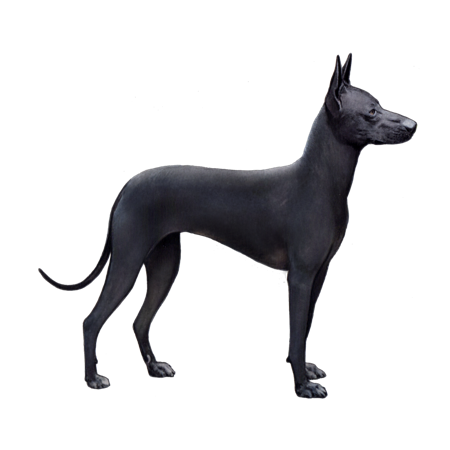
West Highland White Terrier
West Highland White Terriers are alert, intelligent, and independent dogs that love outdoor activities. This breed bonds with its family and makes an excellent watchdog.
Interested in discovering if your dog is a West Highland White Terrier?
Check out Wisdom Panel's DNA tests.

West Highland White Terrier Traits
General Appearance
One of the most popular terriers, the Westie is a small, strong, and hardy-looking breed.
Coat and Coloring
West Highland White Terriers are always white. Some Westies receive grooming that makes their head seem rounder, giving them a bearded appearance.
Distinctive Physical Traits
The snowy colored coat of the West Highland White Terrier is the breed's brightest feature.
West Highland White Terrier Temperament
Despite its compact size, the West Highland White Terrier brims with spunk and a lighthearted nature. The breed offers many appealing traits—such as an outgoing personality, courage, and high intelligence.
West Highland White Terriers are confident and alert dogs. But they're also playful and can be good with children, provided they're treated gently.
Westies have healthy self-confidence and a tendency to bark, making them effective watchdogs.


West Highland White Terrier History
Originating in Scotland and affectionately known as the "Westie," the West Highland White Terrier was bred to hunt fox and other vermin.
Though the breed's exact history is uncertain, some believe that a request from King James I prompted an effort to produce a small breed with a white coat.
Others think that the death of Colonel Malcolm Poltalloch's dog during the 1700s played a role. When a hunter mistook Poltalloch's reddish-colored terrier for a hare or fox and killed it, Colonel Poltalloch swore that he would only own white dogs.
The breed received American Kennel Club recognition as the Roseneath Terrier, named after Roseneath—a Scottish estate that bred the white terriers—in 1908. But the following year, the breed earned its current name.
West Highland White Terrier Care
Nutrition
The West Highland Terrier requires high-quality dog food that is age-appropriate. It's important to monitor how much your Westie eats and reduce the portions if they gain weight. Also, remember that giving too many treats in addition to regular meals can contribute to obesity.
Grooming
Stripping (or plucking) the old, dead hair of the West Highland White Terrier's coat is the traditional way to keep it in the best shape. But some pet owners have it clipped roughly every four to six weeks for neatness.
Daily brushing and combing will keep the coat looking good. Bathing too often can do more harm than good for a Westie. So, make sure to bathe yours in moderation.
Exercise
From romping and playing to walking and running, West Highland White Terriers find pleasure in all kinds of activities. They also enjoy dog sports such as agility, tracking, and obedience.
Westies love a good chase and find no shame in darting after a critter across the street. For this reason, you should limit your pup's outdoor exercise to a fenced yard or use a leash.
Training
The West Highland White Terrier is a very intelligent and independent breed. So, firm but gentle training is required. Westies can be stubborn or strong-willed, but they do respond to reward-based training with motivation. (Tasty treats and favorite toys are excellent tools!) Consistency and patience are key with this breed.

West Highland White Terrier Genetic Health Conditions
-
Craniomandibular Osteopathy (Discovered in Scottish Terrier breeds)
Craniomandibular Osteopathy (CMO), also known as "lion's jaw", is a disorder of the skull where the jaw bones show swelling and thickening, causing pain, drooling, and difficulties in eating.
-
Globoid Cell Leukodystrophy (Discovered in Terriers)
Globoid Cell Leukodystrophy (GLD) is a disorder which results in degeneration of the nervous system. GLD is characterized by muscle weakness, tremors, and ataxia (uncoordinated movement). Signs of the disease also include behavioral changes, incoherence, blindness, and deficits in normal reflexes.
-
L-2-Hydroxyglutaric Aciduria (Discovered in the West Highland White Terrier)
L-2-Hydroxyglutaric Aciduria (L2HGA) is a metabolic disease that causes damage to the nervous system and results in incoordination, muscle stiffness during exercise or times of excitement, and altered behavior or epileptic seizures.
-
Pyruvate Kinase Deficiency (Discovered in the West Highland White Terrier)
Pyruvate Kinase Deficiency (PKD) is a disorder that causes anemia due to the breakdown of red blood cells.
Knowing if your West Highland White Terrier is a carrier or at-risk for these conditions can help you and your veterinarian plan for your pup’s lifelong care. With Wisdom Panel™ Premium, you can get results for over 200 genetic health tests.
Breed Group
Terrier
The Terrier Group ancestors were bred to hunt and kill vermin. They are often characterized as feisty and energetic dogs whose sizes range from fairly small to much larger.
































































